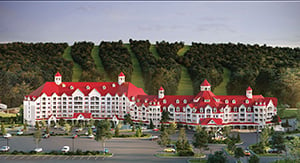Important health & safety updates
Update from NH State Dept of Health & Human Services - 8/21/2024
We are happy to share that all testing from the N.H. State Department of Health and Human Services has confirmed that our recent cooling tower remediation efforts were successful. These results confirm the effectiveness of the facility’s cleaning and disinfection process with negative results for Legionella.
Please refer to the press release below from DHHS for more information. As an organization, we continue to put the health and safety of our RiverWalk family and community first and foremost. We thank all of you, our family of RiverWalk owners, staff members and local community officials, for your continued support.
PRESS RELEASE : FOR IMMEDIATE RELEASE August 21, 2024
FOR MORE INFORMATION Public Information Office 603-271-9389 or pio@dhhs.nh.gov
Legionella Update: Test Results Confirm Success of Lincoln, NH Cooling Tower Cleaning and Disinfection
Concord, NH,
Testing conducted by the New Hampshire Department of Health and Human Services (DHHS), Division of Public Health Services (DPHS) and the New Hampshire Department of Environmental Services (NHDES) has confirmed that remediation efforts to eliminate Legionella bacteria in a cooling tower in Lincoln, New Hampshire were successful. There is no longer an elevated risk of Legionella infection from the cooling tower.
The cooling tower, which is located behind the RiverWalk Resort in the downtown area of Lincoln, underwent a thorough cleaning and disinfection process on August 12, and DHHS and NHDES collected water samples for testing afterwards. Test results, which were received today, confirm the effectiveness of the facility's cleaning and disinfection process with negative results for Legionella. RiverWalk continues to partner with DHHS and NHDES on a water management plan to prevent future contamination or bacterial re-growth.
To date, DHHS has identified seven people who have been confirmed to have Legionnaire's disease, a pneumonia caused by inhaling water droplets contaminated with Legionella bacteria, after visiting an area in downtown Lincoln in June and July. The Department continues to investigate any other diagnoses with a potential link to this specific area.
"The negative test results received today are good news and demonstrate the effectiveness of the cleaning and disinfection of the cooling tower," said Dr. Benjamin Chan, New Hampshire State Epidemiologist. "Therefore, we do not believe there is currently elevated risk for Legionella infection from this cooling tower, and we will continue to monitor and work with the facility to ensure an appropriate management plan is in place to prevent future contamination or re-growth of the bacteria."
Legionella are naturally occurring environmental bacteria that can grow in water systems and infect people who breathe in contaminated water droplets from showers, hot tubs, faucets, cooling towers, misters, and decorative fountains. Fortunately, businesses and individuals can take steps to reduce the risk of contamination in their water systems.
If you have questions about this investigation or Legionnaire's disease, please call DPHS at 603- 271-4496. For more information about Legionella, please visit the DHHS Waterborne Disease webpage or the CDC webpage.
Update on Legionella bacteria presence in cooling tower - August 2024
On Thursday, August 8, New Hampshire’s Department of Health & Human Services informed us that legionnaire’s bacteria was detected in a cooling tower, located behind the resort. It has been concluded that the bacterial contamination occurred within the dormant water of this closed loop cooling tower and that this water does not come directly into the building.
Once we learned this, our team took immediate action to kill this bacteria per the State’s instructions. Based on our engineer’s preliminary tests performed on Tuesday, August 13, remediation appears to have been successful.
Our resort would not be in operation at this time if we or the State believed that it was not safe for our family of employees, owners, rental guests, patrons, and community. On a personal note, my family and I work at the resort. As a mother of two, I would not have my kids or husband here if I believed their health or safety was at risk.
On August 14, DHHS conducted additional follow-up tests. We will share more information as soon as we learn more.
According to DHHS, most healthy people who are exposed to Legionella bacteria do not get sick. However, if you have recently visited the area within one half-mile of the cooling tower’s location (see map here), and you have health concerns, please speak with your health care provider. Symptoms usually begin 2 to 14 days after exposure and can include fever, cough, and shortness of breath. Infections do not spread from person to person. Those who are older, are current or former smokers, have weakened immune systems, or have certain medical conditions like chronic lung disease and diabetes are at higher risk for developing Legionnaire’s disease.
If you have further questions or concerns about the resort’s operations, please contact me at 603-745-7500 or via email at rblood@riverwalkatloon.com. In addition to this, if you have specific questions about Legionnaire’s disease, please call the N.H. Division of Public Health Services at 603-271-4496. And, for more information about Legionella, please visit the N.H. Department of Health and Human Services Waterborne Disease webpage or the CDC webpage.
Thank you.
Renee Blood
Vice President
(603) 745-7500 Ext. 4007
8/13/24: Posted to Facebook:
We have recently been informed that a legionnaires bacteria was detected in our new phase two cooling tower located on the far west end edge of the resort. We are working very closely with state officials to remediate this situation. Upon discovery, our team immediately took the necessary corrective action to kill any residual bacteria per the state’s guidelines. Based on our engineer’s preliminary tests performed this morning, Tuesday, August 13, remediation appears to have been successful.
We continue to prioritize the health and safety of our guests & community and will keep you posted on the state’s testing results once received. If you have further questions or concerns about the resort’s operation, please contact our Vice President, Renee Blood at 603-745-7500 or via email at rblood@riverwalkatloon.com
8/11/24: Email to Incoming Guests & RiverWalk Owners:
I am reaching out to let you know we have recently been informed that a legionnaires bacteria was detected in our new phase two cooling tower located on the far west end edge of the resort. It has been concluded that the bacterial contamination occurred within the dormant water of this closed loop cooling tower during the final stages of our West Wing construction process. Upon discovery, our team immediately took the necessary corrective action to kill any residual bacteria per the state’s guidelines. We continue to work very closely with state officials to remediate this situation and at this time our cooling tower is operational with no concerns for health and safety.
Most healthy people who are exposed to Legionella bacteria do not get sick. However, if you have health concerns, we recommend that you visit your health care provider. Some symptoms of infection may include body aches, fever, and muscle soreness. Those who are older, are current or former smokers, have weakened immune systems, or have certain medical conditions like chronic lung disease and diabetes are at higher risk for developing Legionnaire’s disease.
If you have further questions or concerns, please do not hesitate to reach out to me directly at 603-745-7500 x 4007 or via email at rblood@riverwalkatloon.com
In addition to this, if you have specific questions about Legionnaire’s disease, please call the N.H. Division of Public Health Services at 603-271-4496. And, for more information about Legionella, please visit the N.H. Department of Health and Human Services Waterborne Disease webpage or the CDC webpage.
Thank you very much.
My Best,
Renee Blood
Vice President
A note on water management procedures and processes relating to the recent Legionella bacteria detection.
Please know we take the safety of our employees, owners, and guest very seriously. We follow both the manufacturer and OSHA guidelines for proper care and maintenance of the cooling tower systems at Riverwalk. In the 8 years of operation, the East cooling tower has never experienced an issue with bacterial growth or any operational issues related to health or safety concerns. Cooling towers by OSHA standards are required to be cleaned once per year for seasonal operations and twice per year for towers in year-round operations. Our cooling towers are seasonal, however we clean them twice per year, once before starting up and once mid-season. The water used to cool the tower system is treated regularly (weekly) to maintain proper water chemical levels necessary to mitigate bacteria in the system.
Unfortunately, in the case with the new West cooling tower, the startup and turnover of the system was not performed by our certified and dedicated in-house staff. Our staff perform regular monthly preventive maintenance as outlined by the manufacturers specifications and OSHA standards to maintain healthy operations. CDC recommends, but does not require quarterly testing. Our water systems are tested in house once per week for proper oxidant levels (sodium hypochlorite levels) to maintain a disinfection rate of 10 parts per million or greater which is the recommended disinfection rate in addition to the monthly equipment preventative maintenance.
Moving forward, Riverwalk is working voluntarily with a vendor to formulate a water management program for both cooling towers to include monthly testing by the vendor and professional laboratories to test or detect for certain bacteria which can cause health and safety concerns. Additionally, semiannual disinfection treatments with biocide agents will be applied to ensure both towers are without doubt, sanitized in a manner that is greater than what is typically required for normal operating conditions.

